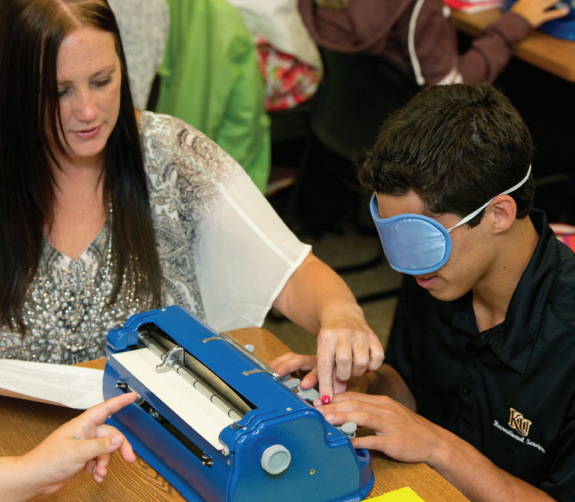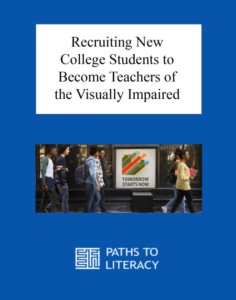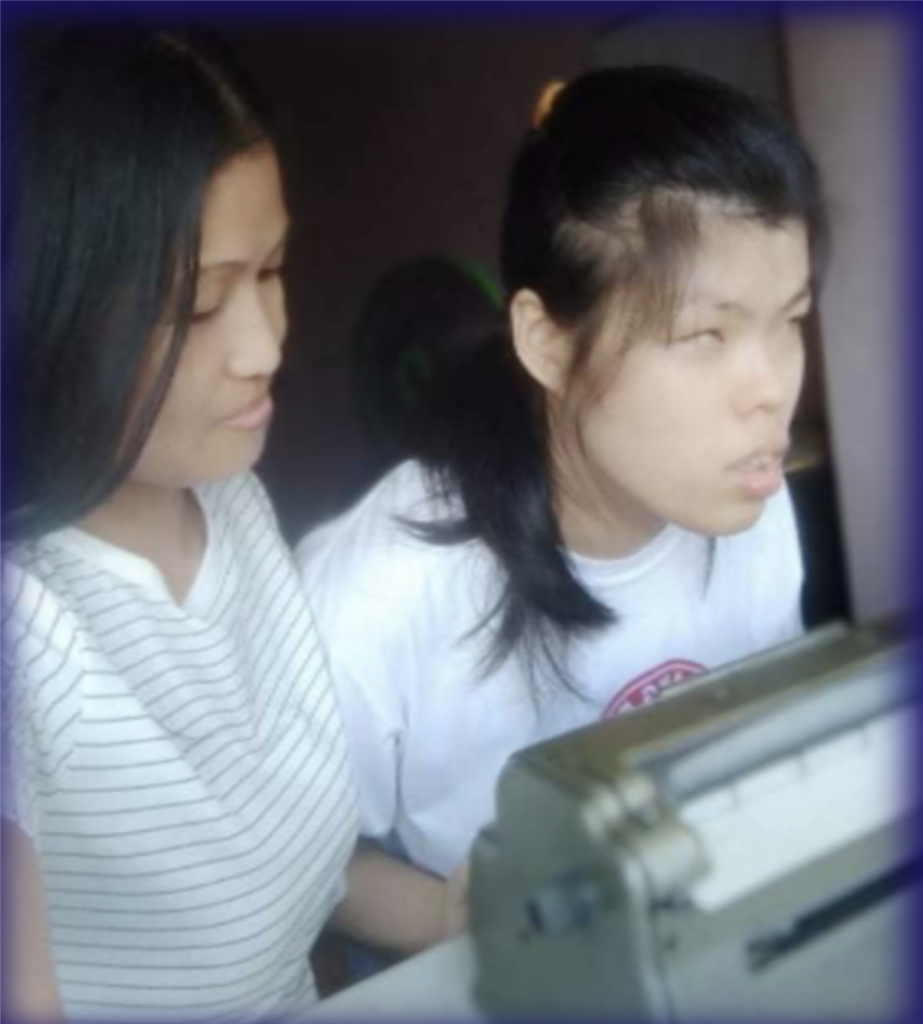There is a teacher shortage. There has been one since before the pandemic that started in 2020. With the need for more skilled teachers in the field, there is even more of a shortage crisis in the field of special education.
Teachers of the Visually Impaired (TVIs) and the vision community need to help solve this problem by promoting and encouraging college bound students into this field as a meaningful career choice.
Back in 1999, Good Morning America did a piece, “There’s a National Shortage of Braille Teachers and the Situation is Dire.” Emily Coleman, the superintendent for Texas school for the Blind and Visually Impaired was interviewed about the shortage of braille educators to support literacy needs.
Kateri Gullifor was also interviewed and stated that if more people knew how rewarding being a teacher of the visually impaired was then there wouldn’t be a shortage. She stated being part of creating the first steps toward independence for students by providing the support and adaptations they need for success is very rewarding.
Cay Holbrook, a professor at the University of British Columbia who has been preparing teachers to instruct braille for over 20 years said, “I always tell people who are coming to me to learn how to teach braille that I can guarantee them a job — in the city, in the mountains, near the ocean. It’s just that much in demand.”
Education Week did an article called, “How Bad Is the Teacher Shortage? What Two New Studies Say” by Madeline Will in September 2022. The article reported that there has been a high turnover rate and a substantial number of students who are not being served by a quality teacher. As reported by Tuan Nguyen, an assistant professor at Kansas State University, Chanh Lam, a data analyst and Ph.D. graduate student at Kansas State, and Paul Bruno, an assistant professor of education policy at the University of Illinois, Urbana-Champaign, have spent years trying to determine the exact scope of the national teacher shortage.
What are Some Ways We Can Support Getting More TVIs into our School Systems?
- Provide job exploration opportunities at the Middle School and High School level in the vision field
- Have TVIs who work in school buildings already show students what they do as a teacher of the visually impaired
- Make braille more accessible in school buildings to everyone, not just our students who read braille, so braille becomes more accessible to the public and encourages print readers to want to learn it
- Get more scholarship opportunities for students who decide to go to college to become TVIs by reaching out and in-servicing corporations and community leaders
- Support programs that provide the teaching programs and encourage more teachers to get an additional TVI certification
A TVI Program That Stands Out for Excellence
Kutztown University, located in Pennsylvania, is one such teaching program and a leader in the field with their teaching program for TVIs at both the undergraduate and graduate level. Kutztown University graduates between 30 and 50 professionals into the vision field every year. Dr. Nicole Johnson is the director of the vision program at Kutztown University and reports her observations, suggestions, and what her program is about below.

The Vision Program at Kutztown University is a “hidden gem.” Our undergraduate students have the option to major in Teacher of the Visually Impaired only, dual TVI with Special Education, or dual TVI with Elementary Education. At the graduate level candidates can choose to earn their Masters degree or complete the TVI certification by itself. During their time at Kutztown University teacher candidates gain hands on experience in various aspects of the vision field including learning new cutting-edge technology, observation hours at schools for the blind and itinerant placements, hearing guest lecturers, attending conferences, hands-on experiences, and meeting ALL teacher of the visually impaired competencies identified by the Council for Exceptional Children: Division on Visual Impairment and Deafblindness through their coursework.
Our vision program at KU is Nationally Accredited and recognized for our well-prepared teachers. Currently, there is a need for more students in the program. We are not meeting the demand for teachers of the blind and visually impaired. Graduates are easily finding jobs but there are still children with visual impairments not being served because there are not enough teachers. Teacher candidates in our program feel a sense of accomplishment and usually fall in love with the field and children.
One of our recent graduates, Kenady O’Niel, said: “The thing I liked most about the program was the hands-on experiences. The program made me feel prepared for student teaching, as well as in the field by having comprehension knowledge of different eye conditions, and how to serve students to their individual needs. Every student is different and this was stressed throughout the entire time in the program.”
The university tries to build awareness of visual impairments by pairing with local resource centers for the blind and hosting events like dine in the dark. They also go into the community and braille menus, hand out information on visual impairments, and volunteer at various events. I hope our program continues to grow and we graduate enough teachers of the visually impaired so all children with visual impairments have access to a qualified teacher that can meet their needs.
Learn more about the Visual Impairment Certification Preparation Program





